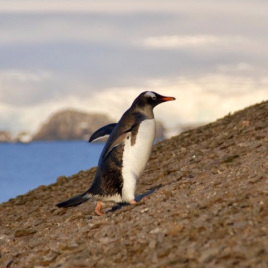Over the past 7000 years, gentoo penguins on the Antarctic Peninsula have been wiped out to near extinction by a volcanic eruption—not once, but three times, according to new research. The study also suggests it took the colony between 400 and 800 years to recover from each event. Researchers made this startling discovery while analyzing […]
Category: Paper of Interest
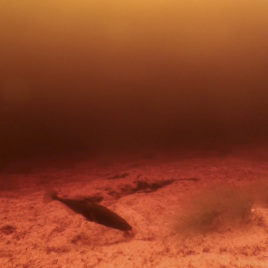
How distantly-related populations of sticklebacks evolved the same solution to their unique environments 
Three-spined stickleback fish have inhabited freshwater lakes in the Haida Gwaii archipelago off the coast of British Columbia for thousands of years. A new study that combines genetic analysis with a 19-year-long selection experiment tells the story of how the sticklebacks evolved to adapt their vision to each of their unique lakewater conditions. Some of […]

Why the internet couldn’t agree on the colours of “The Dress”
The image of a simple dress on a hanger went viral in 2015, with thousands of internet users trying to figure out whether the dress was black with blue stripes or white with gold stripes. Once the owner came forward to settle the question (it was confirmed by the retailer as blue and black), many […]
How ocean dynamics affect deep-sea invertebrates in hydrothermal vents 
Distribution of mobile and non-symbiotic species of invertebrates living in hydrothermal vents is affected by ocean tides and winter surface storms, new research suggests. Using a brand new technique, researchers are able to provide first-ever evidence of these populations being affected by ocean dynamics even at deep-sea levels, in habitats over 2 kilometres from the […]
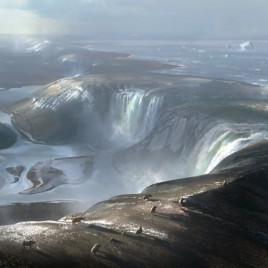
The island of Britain was separated from Europe by two glacial lake floods
Britain used to be connected to mainland Europe by a chalk bridge, which extended from southeast England to northwest France. New research suggests that two episodes of erosion created the Dover Strait, as opposed to a single glacial lake spillover, as previously thought. New evidence supports the existing theory of the initial erosion around 450,000 years […]
Size and growth rate for sharks determined by their habitat 
How big a young shark grows up to be, and how fast it grows, may depend on where it feeds. Researchers observed a population of juvenile sharks in a nursery that contained both a high-risk habitat (open seagrass beds) and a low-risk one (protected mangroves). Sharks that preferred to feed in the mangroves were generally smaller and grew […]
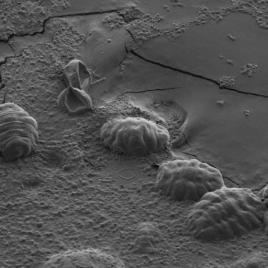
Moss piglets’ secret survival weapon
Tardigrades are among the most resilient species on the planet: they can survive in the deep sea, in nearly-absolute zero temperatures, and even in space. Also known as water bears or moss piglets, their survival in the most extreme of conditions has been mind-boggling for generations of scientists. Now, researchers believed they have solved a […]
Climate shaped the evolution of the human nose
It looks like temperature and humidity of a region may have stuck their noses in the evolution of the human smelling organ. Researchers examined the size and shape of noses on people of West African, South Asian, East Asian, and Northern European descent. They say the discovered differences are too great to have occurred on chance […]

Biofuels help reduce emissions from airplanes at cruise conditions 
A mixture of biofuel and conventional fuel reduces airplane emissions by 50 to 70% compared to conventional fuel, according to the first ever in-flight study of biofuel aerosol emissions. Researchers measured aerosol emissions from an aircraft flying behind the test plane, a technique that provided more accurate results than ground tests. Aerosols released by plane engines in-flight […]
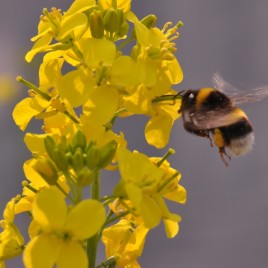
Plant evolution is influenced by pollinator species
In just 11 generations of pollination by two different species, plant evolution diverged drastically in height, flower fragrance, flower colour, and reliance on the pollinator for reproduction. A new study was conducted in a greenhouse instead of in the field in order to create an experimental system. Researchers observed how the plant Brassica rapa evolved when […]
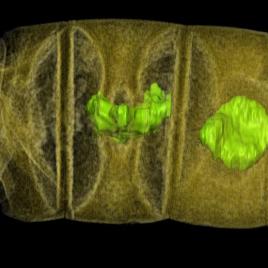
1.6 billion-year-old red algae found in fossils
World’s oldest plant-like fossils, which the scientists believe are ancient red algae, were discovered in sedimentary rocks at Chitrakoot in central India. It’s difficult to ascertain that the fossils are, in fact, red algae, since there is no DNA material present, but researchers say the structure of the cells are consistent with this ancient plant […]
Cystic fibrosis patients live 10 years longer in Canada than U.S. 
A recent analysis of over 50,000 cystic fibrosis cases in U.S. and Canada revealed than the median survival age is greater in Canada by approximately ten years. Additionally, the risk of death was lower by 34% in Canada, after taking age and severity of disease into account. Researchers say the scope of their study didn’t […]
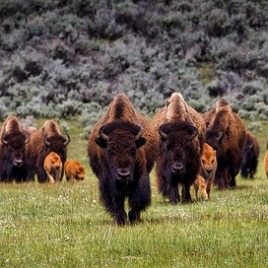
When did bison arrive in North America? 
The bison’s arrival in North America from Asia was an ecologically significant event, but its timeline remained a mystery—until now. The mystery started to unravel when researchers found a bison fossil dating about 130,000 years old in northern Yukon—the oldest known fossil of the large mammal in North America. They compared the genomes of the […]
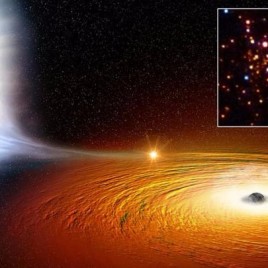
Scientists observe star in closest orbit around a black hole 
In a cluster of stars 14,800 light years away from Earth, one star is involved in the closest orbital dance with a black hole ever observed, circling the black hole twice in an hour. This could be the tightest orbital distance between a black hole and a white dwarf star in the Milky Way, with […]
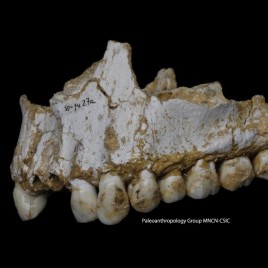
Details of a Neanderthal’s diet revealed through ancient plaque 
Good thing our Neanderthal cousins didn’t have a good brushing regimen, because what’s left of their dental plaque allows us to know more about their diets, habits, and diseases. New research sequenced DNA from the plaque of five Neanderthal specimens. The findings revealed that Neanderthal diets varied greatly from region to region: for example, the individual from […]

“Liberation therapy” not an effective MS treatment 
Expanding narrow veins from the brain and spinal cord is not effective in treating multiple sclerosis (MS), according to new research coming out of British Columbia. The invasive surgical procedure, called “liberation therapy”, is performed by inserting a catheter into the vein and pushing out the vessel walls by inflating a small balloon. Thousands of […]
